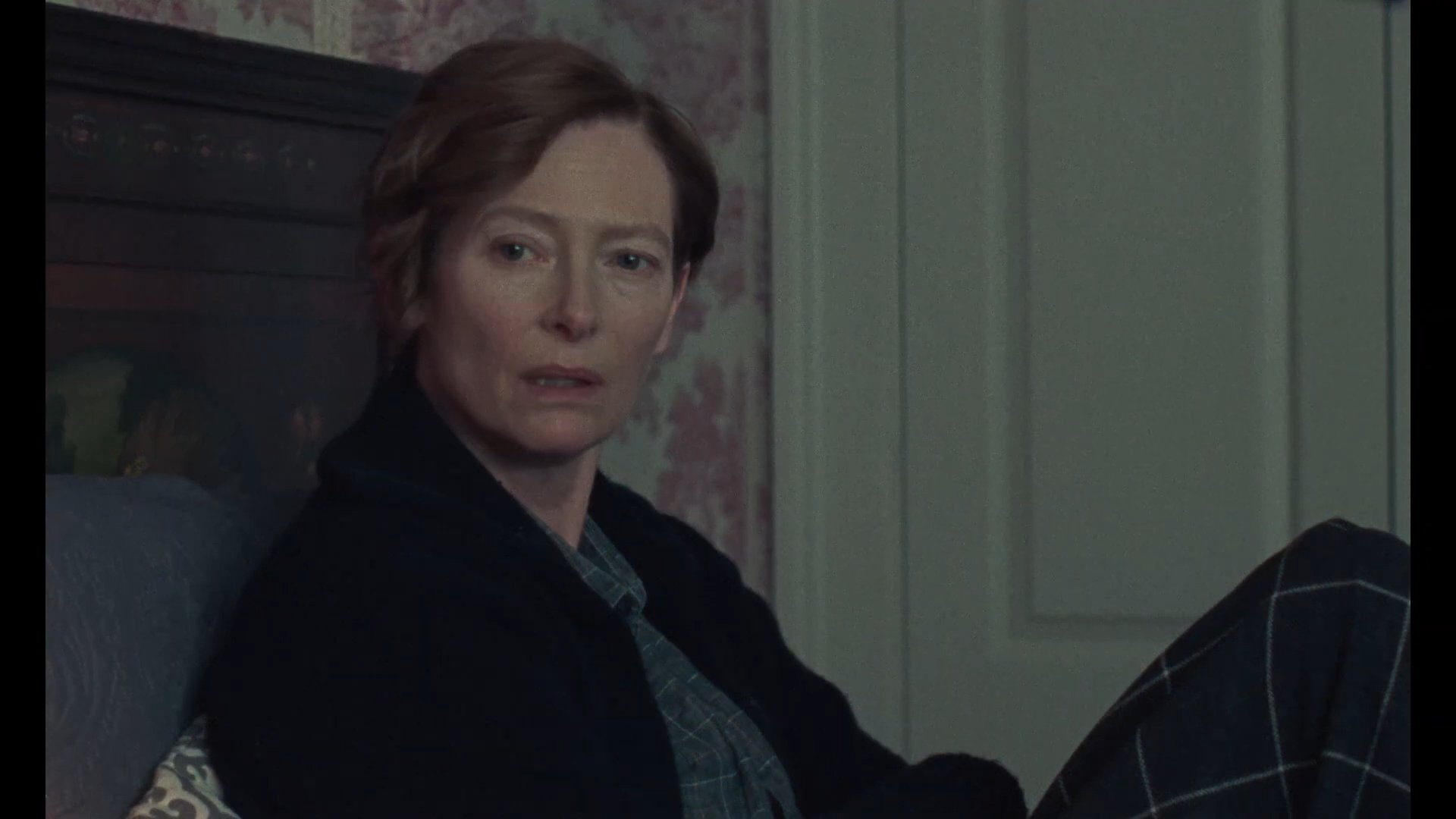'The Eternal Daughter' Review: Memories Haunt The House In This Atmospheric Horror
In Joanna Hogg’s chilling subversion of the haunted house mystery, she proves that our own memories and experiences are much more unsettling than any ghosts could be.
What begins like any typical ghost story quickly morphs into something much more unsettling and profound with The Eternal Daughter, a unique film that navigates complex issues such as motherhood, grief, and isolation through the ever-familiar lens of a haunted house mystery. The story uses its recognizable facade to craft a false sense of security within the viewer, before destroying this image completely and delivering an emotional gut punch that really drives home its central message - everybody enters and exits this world alone, but it’s our actions throughout life that make this process easier.
Audiences will likely recognize Joanna Hogg’s name from her recent critical darlings, The Souvenir and The Souvenir: Part II. Her latest feature marks a clear departure from this off-centered and cerebral style, but the emotional maturity and depth remain just as powerful. The Eternal Daughter follows an older woman named Julie, who accompanies her mother to her old family home, which has since been turned into a quaint guesthouse. But upon arrival at the hotel, Julie begins to realize that the building’s walls might not house the happy memories that she’d initially expected. What ensues is a dark tale of shadows and whispers that forces Julie to delve deeper into her mother’s past and question her own sanity along the way.
The most impressive aspect of The Eternal Daughter is its uncanny ability to build atmosphere and tension throughout even the most uneventful scenes. Late-night dog walks and afternoon mealtimes are filled with indescribable discomfort only possible thanks to Hogg’s astute direction. She knows exactly when to let a scene linger for just a moment too long, and exactly where to place the camera for that optimal sense of distance and uneasiness. This results in several scenes that run for numerous minutes without so much as a word being spoken; many audiences will find themselves deterred by this slow pace and grueling momentum, but if you’re able to fully immerse yourself in the film without distractions, you’ll quickly find yourself sucked into this atmospheric world that Hogg so confidently builds. Even the faintest creaky floorboard or the most distant gust of wind becomes a source of immense discomfort, which really helps forge the haunted house atmosphere that’s so important to the story.
And yet, despite all that, The Eternal Daughter isn’t really a horror film at all. Whilst it might present itself as such on the surface, it soon becomes clear that its unsettling atmosphere and supernatural subtext are nothing more than a backdrop for the film’s true narrative; and that’s a story of love and tenderness. The relationship between Julie and her mother Rosalind is what keeps the story’s heart beating throughout, presenting an extremely personal and surprisingly relatable dynamic that almost all audiences will relate to on some level - children enter this world under the protection of their mothers, and when those mothers begin to reach the end of their lives, the role of responsibility passes back to the child in an endless cycle of preservation and liability. These are the exact ideas that Hogg frames her story around, using the Gothic backdrop to emphasize the dark truth of this eternal relationship.
The Eternal Daughter obviously isn’t the first story to tackle these ideas, but it has one aspect that others don’t - Tilda Swinton. The way she brings this story to life is absolutely masterful, showcasing her extensive talent with a wide range of emotions that really get the audience invested in this narrative. She adopts both lead roles in the film, playing both Julie and Rosalind at the same time. It’s no easy feat, but she manages to completely transform into both characters and keep them unique and distinct from each other, despite their many similarities. Her emotional range in the film is made even more impressive when you consider that she’s acting against nobody in most scenes, cementing these performances as one of the greatest acting achievements of the entire year. The decision to cast Swinton in both roles is actually a surprisingly meaningful one that speaks volumes to the message of the film - Julie sees herself in her mother, and her mirrored appearance promotes the film’s idea that a mother-daughter relationship is an eternal and cyclical one, destined to repeat for generation after generation.
The Eternal Daughter might have its problems - the pacing and lack of momentum will definitely be a deal-breaker for some audiences - but overall, it’s a fascinating film that defies genre expectations and promotes an important message for all generations. Swinton’s performance(s) are ferocious and unforgettable, whilst Hogg’s direction forges a powerful atmosphere that really speaks to the Gothic style of the narrative. The emotional impact will definitely be greater for those to whom the subject matter has a personal influence, but anybody can easily lose themselves in this timeless story of ghosts and memories.



